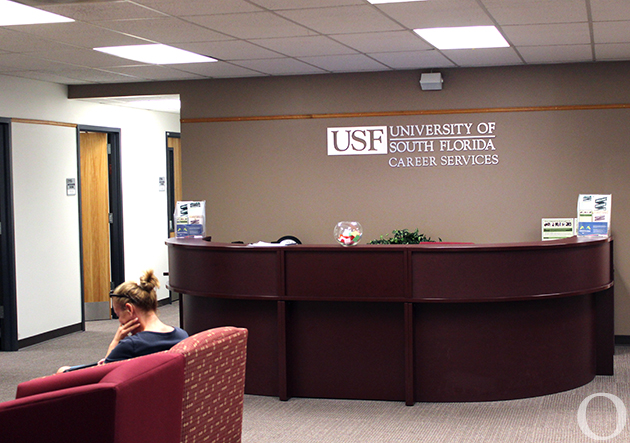Students subject to email scams

The USF Success Center and Dean of Students Danielle McDonald are sending emails to students warning them to “remain vigilant” of email scams.
In early October, students began to get emails from registered USF email addresses from names such as Jule Kovacs and Timothy Clark with job offers to students.
The job offers included high hourly pay, no applications needed and positions that allowed the employee to work at home and didn’t require clearance to work in the U.S. They tried to appear highly attractive to college students looking for job opportunities.
“Someone used our public directories and harvested information to construct an email message that looked official, had all the right names and came from what seemed to be USF email addresses,” said Peter Thorsett, communications and marketing officer for Career Services.
The scammers would use these public directories to make their emails look like USF emails in a process known as “spoofing.” Once disguised, the emails would then look legitimate and the content wouldn’t get caught by email filters.
Thorsett assured that student emails and accounts have not been compromised in any way, and that these attacks come from insecurities that stem from internet providers.
“Essentially, it’s a weakness in the way that the technology infrastructure operates,” Thorsett said. “In order for this issue to go away, it would have to be something implemented by people like AT&T and Verizon.”
More than 20 students have reached out regarding the emails, and there are reports of students having lost money to the scammers, according to Thorsett.
“It spread slowly from St. Pete to the Tampa campus, and we’ve sent emails to students regarding the ongoing scam and how students can protect themselves,” Thorsett said.
An email from McDonald was sent out Nov. 26 warning students of “a scam job opportunity” and to be wary of offers that come without applying or asking for upfront payment.
“These email messages often look and feel official,” McDonald said. “They sometimes come from the email addresses of other students, faculty or administrators.
“These emails are fake, sent by scammers who are simply trying to trick you into sending them your personal information or money.”
Students can defend themselves against future scams like these by double-checking emails through the online career management system Handshake.
“The best way for students to stay safe is to remain vigilant, and pay attention to what is being offered to you,” Thorsett said. “If it’s too good to be true, follow up over Handshake, or email us first.”







